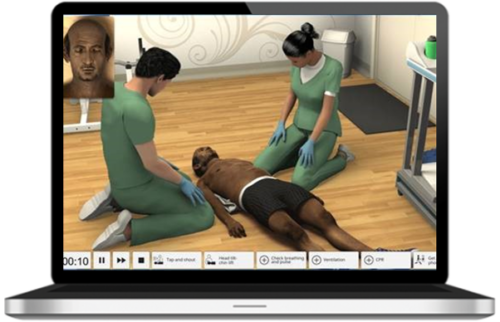
NSCA Suing CrossFit; CrossFit Affiliate Owner’s Cases Thrown Out
The National Strength and Conditioning Association (NSCA) is suing CrossFit Inc. in a California superior court while federal lawsuits filed by a CrossFit affiliate owner in Ohio against the NSCA and Ohio State University have been thrown out.
The litigation stems from a study the NSCA published in the Journal on Strength and Conditioning relating to whether injury rates should be considered a factor in the study’s findings. CrossFit claimed the authors of the study used incorrect data by reporting nine of the 54 participants in a CrossFit program dropped out due to injury or overuse. In May 2014,CrossFit sued the NSCA on the grounds of false advertising and unfair competition in U.S. District Court, Southern District of California.
Related: NSCA Adds Correction to Article on CrossFit Study
The NSCA, which added a correction to the article last year on the CrossFit study now stating an injury rate should not be considered a factor in the study’s findings, filed its lawsuit against CrossFit Inc. as well as owner Greg Glassman and two other defendants in May in San Diego County State Superior Court on the grounds of trade libel, defamation and unfair business practices.
Among the claims, the NSCA alleges that CrossFit, through a blog written by defendants Russell Berger and Russell Greene, as well as a video that CrossFit produced, “willfully, knowingly, without justification, and without privilege made the false and disparaging statements … to existing and potential future members, customers, and sponsors of the NSCA,” according to the complaint obtained by iClubs. The NSCA also claims it has “suffered loss of its business reputation.”
In the complaint, the NSCA takes issue with a number of comments made by CrossFit. One of those comments published in CrossFit’s “The Russells” blog in June 2014 stated: “Unfortunately, the NSCA’s corrupted science didn’t just harm CrossFit 614 (the Ohio CrossFit gym in which the study took place). The NSCA also falsely besmirched the reputation of all CrossFit affiliates, and spread the lie that they are practicing dangerous training.” Another comment cited in the complaint came in the CrossFit video, which stated, “The NSCA has literally gotten every single thing about fitness and health wrong for the past couple of decades.”
CrossFit defended itself on The Russells blog in May and provided a formal answer in court on July 22 in which it denied every allegation produced by the NSCA in the complaint. CrossFit provided 27 affirmative defenses in its answer. Among them, CrossFit says the claims are barred by the First Amendment of the U.S. Constitution as well as by the one-year statute of limitations established by the California Code of Civil Procedure.
“The allegedly defamatory statements of which Plaintiff complains are related to a constitutionally protected matter of public concern and Plaintiff has failed to adequately allege that those statements concerning it caused Plaintiff any actual injury,” CrossFit wrote in its 25th defense in its answer, obtained by iClubs.
According to court filings, a civil case management conference is scheduled for Jan. 27, 2017, in San Diego County Superior Court. CrossFit, through Berger and Greene, declined to comment about the case to iClubs. The NSCA also declined to comment to iClubs, citing its policy not to comment on active litigation.
Related: CrossFit Owner Sues Ohio State University over Fitness Study
That 2014 federal lawsuit filed by CrossFit against the NSCA remains active, with the latest filings occurring on July 21. In May, the NSCA said in a motion for summary judgment that the discussion of CrossFit’s injury risk in the article is immune from CrossFit’s Lanham Act (the primary U.S. trademark statute, which prohibits false advertising) and California state claims.
“This constitutional protection exists for scientific journals like the JSCR because the legal system has long supported the free exchange of scholarly ideas and research and, as this case demonstrates, the First Amendment imposes this barrier for good reason,” the NSCA said, as reported by Law360. “Simply put, this litigation is a controversy wholly contrived by CrossFit’s desire to neutralize the influence of academic scientists in evaluating the safety of its exercise program.”
Two cased filed by Ohio CrossFit owner Mitchell Potterf against the NSCA and Ohio State University in U.S. District Court, Southern District of Ohio, were thrown out in November 2015 and January 2016, respectively. Potterf had claimed Ohio State used incorrect data in the study to obtain $273 million in grants from the National Institutes of Health.
Two judges dismissed the lawsuits, stating that, according to a RetractionWatch.com report, “contrary to Potterf’s allegation, the school did not use the statement in question to secure funding, that the United States did not suffer as a result of the false statement and that Potterf’s amended complaint was too similar to an initial, unsatisfactory one.” Also, as Law360 reported, Judge Elizabeth Preston Deavers ruled that Potterf cannot sue the university because state institutions are not subject to False Claims Act (FCA) claims.
“In sum, Plaintiff’s Amended Complaint appears to be no more than a spurious charge of fraudulent behavior that does not meet the minimal pleading standards,” Deavers wrote in the Potterf-Ohio State case.
Similarly, Judge George C. Smith wrote in the Potterf-NSCA case, “In sum, Plaintiff’s Amended Complaint appears to be no more than a fishing expedition that does not meet the stringent pleading standards.”










































































